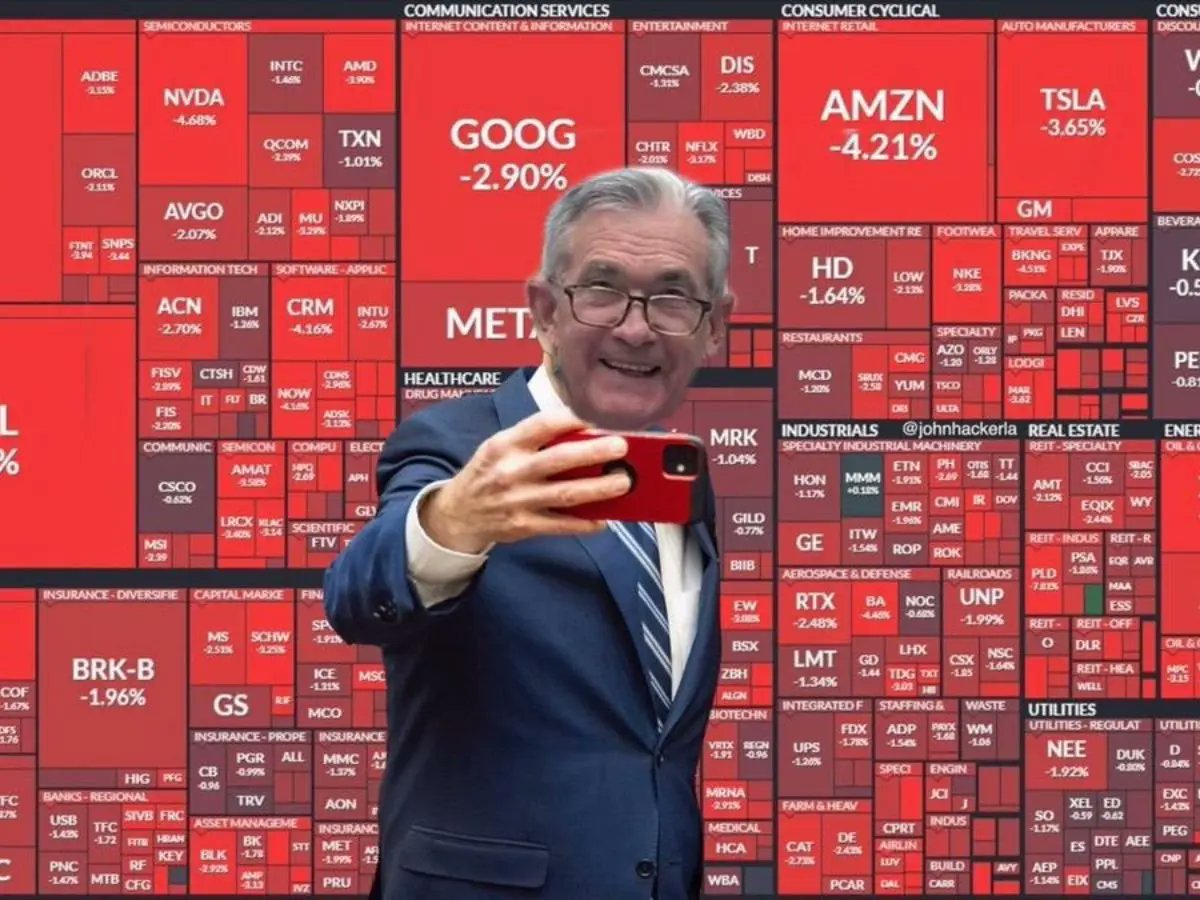In a move that sent shockwaves through the financial markets, Federal Reserve Chairman Jerome Powell’s recent warning about potential further interest rate hikes has raised questions about the central bank’s role in communicating its stance on the economy. Powell, speaking at an International Monetary Fund conference, stated, “If it becomes appropriate to tighten policy further, we will not hesitate to do so.” This announcement came just after a rally in equities sparked by suggestions that the Fed’s tightening cycle might be reaching its end.
The Fed’s mixed messages have left investors puzzled, and some argue that it might be time for the central bank to reconsider its approach to public communication. Powell’s remarks, emphasizing the Fed’s readiness to tighten policy, led to a decline in Asian stocks, highlighting the sensitivity of global markets to the central bank’s statements.
Last week, the Fed decided to hold interest rates, acknowledging that soaring Treasury yields had been acting as a substitute for rate hikes. However, Powell’s recent comments seemed to backtrack on the dovish sentiment that contributed to the rally in Treasuries. Redmond Wong of Saxo noted that Powell’s words were “an attempt to push back on the dovish repricing,” indicating a potential shift in the central bank’s rhetoric.
The markets’ reaction was swift, with all three main indexes on Wall Street ending in the red, breaking an eight-day winning streak for the S&P 500. Asian markets, too, followed suit, with Hong Kong, Tokyo, Shanghai, Sydney, Seoul, Singapore, Taipei, Jakarta, Wellington, and Manila experiencing notable declines.
While Powell’s remarks have injected uncertainty into the market, some experts remain optimistic that the era of rate hikes may be coming to an end. JPMorgan Chase & Co. chief US economist Michael Feroli expressed belief that the Fed is done hiking for this cycle. However, he cautioned that the central bank’s rhetoric must stay hawkish until further improvement in inflation is seen.
The dollar, reacting to Powell’s comments, rallied against its key peers and sustained those gains in Asian trading. Traders are closely monitoring the dollar’s performance, particularly against the yen, as Japanese authorities stand ready to intervene if their currency weakens too significantly.
The Fed’s communications have always been closely scrutinized, given their potential to impact global financial markets. However, the recent mixed messages from Powell and other Fed officials raise questions about the effectiveness and clarity of the central bank’s communication strategy. As economic uncertainties persist, the role of the Fed in shaping market expectations becomes increasingly crucial, prompting a broader conversation about the appropriate balance between transparency and market stability.
Shayne Heffernan









